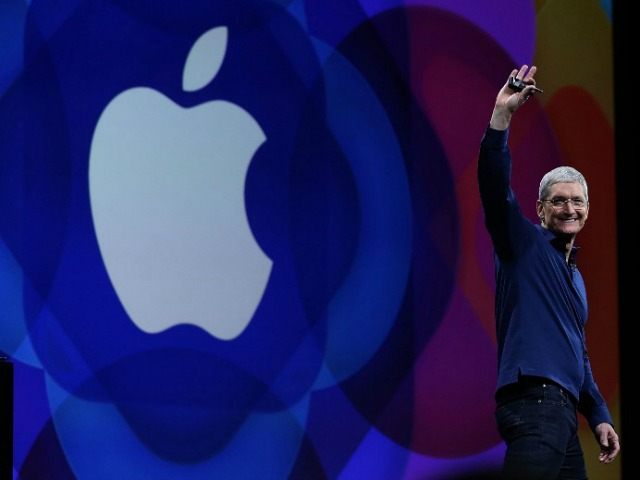The rumor mill indicates that the 155 acres that Apple quietly acquired near San Jose International Airport are enough for the R&D center for its “Project Titan” self-driving cars.
Elon Musk told the German newspaper Handelsblatt, that Apple, Inc. (NASDAQ:AAPL) can’t just go to China’s Foxconn and say, “build me a car” the way they told Foxconn to “build us a phone” and produced the iconic iPhone.
The iPhone had plenty of examples in 2005 when Steve Jobs decided to try to build a cell phone. When he launched “Project Purple 2” to put technology on a mobile phone, the cell phone designs and the networks had already been in place for up to 20 years.
Jobs assembled a small team to do the research and design. But as Tony Fadell told the Apple Insider, the product “development and building the first iPhone was the easy part. The much harder part was being able to produce millions of iPhones.”
Early stage iPhone antennae lab work, prototyping and testing were done at Apple’s Cupertino, California headquarters. But the actual assembly was done at Foxconn in China. The collaboration launched the product in 18 months.
In July 2015, it was learned that Apple had signed a lease with Ellis Partners for a 290,000-square foot office building north of San Jose, and over the next four months bought 90,000 square feet in contiguous parcels for about $300 million.
Apple is already building a brand new spaceship-looking headquarters called “One Infinite Loop,” which will add 3.4 million square feet of office space. When completed in 2016, Apple will control 40 percent of all Cupertino’s office jobs for non-retail employees.
But the north San Jose location is approved for 4.3 million square feet of potential office space. There is no current business along the lines of Apple products that could justify such an expansive staffing effort. The site would be perfect for a research and development center for Project Titan self-driving vehicle prototypes and conducting regulatory and safety testing, according to Neil Cybart at Above Avalon.
Apple’s new facility is just twenty-five miles from the Center for Automotive Design at Stanford in San Mateo. Apple, Tesla and Google all have top secret research labs dedicated to creating the future of the automobile. According to Automotive News, all of them are on rapid expansion drives and are willing to pay top dollar to recruit top talent.
Breitbart News reported that within 24 hours of CEO Elon Musk’s February 25 announcement that Tesla was offering to give away open source use of its electric propulsion patent portfolio, Apple leaked that it had been working on an autonomous car, called “Project Titan.”
At the press conference to announce his charitable gift, Musk was asked if Apple might try to steal Tesla talent. He chuckled and said it would be great if Apple entered the car business, but assured the crowd that no Tesla engineers were leaving for Apple.
Musk’s confidence in his business model was built on the faith that no other Silicon Valley company could match Tesla’s battery technology.
But Breitbart News later reported, the bankrupt electric-car battery maker A123 Systems was suing Apple for alleged illegal recruiting A123’s top PhD engineers to work on developing highly advanced industrial lithium-ion batteries for autos and industrial purposes. LinkedIn profile updates showed that at least 11 former A123 engineers had moved to Apple.
Breitbart also reported that according to a review of Linkedin Silicon Valley engineer job change updates, at least 60 former Tesla employees are now on the Apple’s payroll. Tesla design engineers are still actively being recruited by Apple with offers of $250,000 starting bonuses and 60 percent pay bumps.
Tesla’s Musk told German newspaper Handelsblatt,“We always jokingly call Apple the Tesla Graveyard. If you don’t make it at Tesla, you go work at Apple.” Musk added, “Did you ever take a look at the Apple Watch?” He snickered, “Cars are very complex compared to phones or smartwatches.”
Apple understands the complexity of making vehicles, but it sees technology and connectivity disruptively changing the economics of vehicle ownership.
According to McKinsey Associates, “millennials” (the 18–34 demographic) place less importance on car ownership than previous generations. They are more open to sharing cars and to the rapidly growing number of “mobility services,” such as Uber and Lyft.
But McKinsey believes car sharing does not translate into fewer car sales. They believe that the average distance driven per person with self-driving autonomous cars will actually increase. They also believe that the future “regime” for individuals will include use of a variety of vehicle types, including utilitarian commuters and higher-performance “fun” cars for driving on the weekends.
With human error contributing about 90 percent of all accidents, autonomous vehicles programmed not to crash will radically increase safe road speeds and reduce congestion. Reduced commute times will make distant suburban living attractive again.
Project Titan will continue the same manufacturing model undertaken for most of Apple’s products, including iPhones. Instead of build cars in its own factories, Apple will contract for both component manufacturing and vehicle final assembly.
At their Silicon Valley north of San Jose facility, Apple will perform the research, design, and prototyping in order to figure out what should or should not be included in an Apple Car. With about a hundred acres for a test track, Apple has everything needed for Titan.

COMMENTS
Please let us know if you're having issues with commenting.